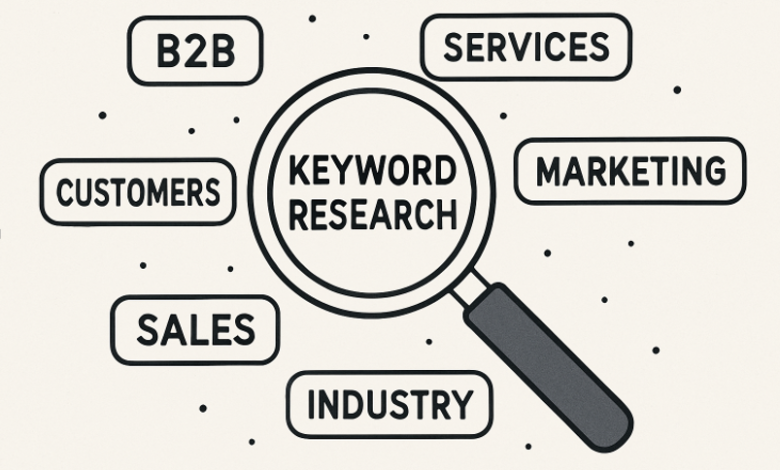Strategies for Driving Growth With B2B SEO: A Practical Approach

Why B2B SEO Is Unique
Search engine optimization for B2B organizations presents a distinct set of challenges and opportunities compared to traditional B2C strategies. With longer buying journeys and decisions often made by teams rather than individuals, B2B SEO must address more complex informational needs and foster trust over time. Notably, effective strategies deliver high-value leads by meeting these nuanced requirements and providing resources that build confidence during prolonged evaluations. For companies looking to scale results quickly and efficiently, partnering with a specialized B2B SEO agency can streamline execution and bring industry-specific expertise. Organizational purchases involve a rigorous vetting process. B2B buyers increasingly rely on educational resources and vendor transparency before engaging sales teams. As a result, content strategy, keyword targeting, and technical optimization must align to address every stage of the journey, from discovery to decision.
Identifying What Your Audience Needs
Understanding an audience’s specific requirements is the foundation for any successful B2B marketing effort. Rather than flashy messaging, B2B decision-makers seek clear, actionable information tailored to their roles and industries. Educational content—such as solution guides and in-depth whitepapers—outperforms overtly promotional material, driving meaningful engagement across the funnel. This dynamic makes empathy, buyer persona research, and pain point analysis central to SEO strategy. Qualitative research methods, including customer interviews, feedback loops, and analyzing competitors’ FAQ pages, help pinpoint what prospects truly value. Ensuring that website content directly addresses these needs increases the likelihood that visitors will convert into leads who are ready for a deeper sales conversation.
Keyword Research and Targeting for B2B
B2B keyword research differs from B2C in both language complexity and intent. Business buyers typically use longer phrases that reflect operational problems or industry jargon. Targeting a blend of head terms, long-tail keywords, and questions demonstrates authority to both users and search engines. Equally important is recognizing search intent: prospects rarely convert on their first touch but start with high-level research before moving to solution comparison.
- Monitor industry forums, Q&A platforms like Quora, and LinkedIn groups to gather insight on the terminology prospects use organically.
- Mix informational queries (“how to streamline IT operations”) with transactional phrases (“enterprise workflow automation software”) to attract users across the consideration spectrum.
- Balance your keyword portfolio with competition and monthly volume data, as ranking for niche terms may drive more qualified traffic than broad, highly competitive keywords.
Building Effective B2B Content
Effective B2B content must be value-driven and actionable. High-performing formats include comprehensive guides, in-depth case studies, solution comparisons, and resource calculators. Each piece should clearly address pain points, map to different buyer personas, and provide compelling next steps for further engagement. For example, a detailed case study on how a SaaS company improved efficiency for a large enterprise can foster trust and convince other potential clients that your solutions deliver real results. Regularly updating content, incorporating subject matter expert insights, and layering in data points or statistics adds trustworthiness and depth, helping both users and search engines view your site as a trusted resource. Content that demonstrates thought leadership and addresses trends tends to earn backlinks and repeat visits, strengthening domain authority over time.
See also: LED Headlight Manufacturers and Bi-LED Lens Technology: A Complete Guide
Technical Foundations for B2B SEO
Strong technical SEO underpins the success of every high-performing B2B website. Fast-loading pages, secure connections (HTTPS), mobile responsiveness, and clear navigation are must-haves. A logical site architecture that supports both human navigation and efficient search engine crawling is essential, as is the implementation of structured data where appropriate. Conducting regular technical audits ensures ongoing health, flags potential issues before they impact rankings, and provides greater reliability to often risk-averse B2B buyers. Staying up to date with Google’s best practices ensures your technical foundation supports long-term visibility.
Measuring the Impact
Success in B2B SEO extends well beyond organic traffic alone. Key performance indicators should include lead quality, sales pipeline influence, conversion rates from organic sources, and customer acquisition costs. Utilizing robust analytics platforms enables marketing teams to segment performance by keyword, content type, and funnel stage, painting a full picture of SEO-driven growth.
- Track organic traffic and engagement using tools like Google Analytics and Search Console.
- Measure keyword ranking progress and tie it back to revenue influence and conversion rates.
- Report regularly on new leads, sales-qualified opportunities, and revenue attributed to specific SEO efforts for stronger campaign justification.
Practical Steps for Sustainable Growth
Sustainable B2B SEO requires layering on initiatives over time. Key actions include building content clusters around core topics, cultivating authoritative backlinks, and refreshing legacy assets to reflect the latest industry thinking. Collaborations such as webinars or third-party guest content can expand your reach, while original research and data-driven blog posts tend to attract high-quality backlinks. Consistent review and iteration on content performance are crucial to long-term growth in competitive verticals.
Future Trends in B2B SEO
As AI and machine learning advance, search engines are growing more adept at evaluating content quality and user satisfaction. B2B organizations must provide comprehensive, easy-to-navigate resources that answer complex queries. Voice search and semantic optimization are also on the rise, reflecting shifts in how decision-makers access information during busy schedules on mobile devices. Staying ahead of Google’s algorithm updates and emphasizing helpful content—rather than keyword stuffing—will be the hallmark of sustainable long-term growth.
Conclusion
Driving growth with B2B SEO is a strategic, long-term investment that rewards consistent effort and ongoing innovation. By centering content on buyer needs, maintaining strong technical foundations, and measuring what matters, organizations can establish authority, reach decision-makers at every stage, and build systems for continuous revenue growth. Whether initiating efforts in-house or seeking the guidance of a b2b seo agency, B2B companies that treat SEO as integral to their marketing mix are well-positioned for success in today’s digital-first environment.


